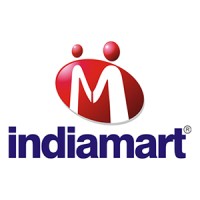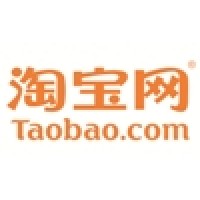
StoreHub Company Cyber Security Posture
storehub.comStoreHub Sdn Bhd (1072290-D) is an all-in-one platform that enables retailers and restaurants across Southeast Asia to automate and grow their businesses. StoreHub’s platform provides a comprehensive ecosystem of solutions ranging from a cloud-based POS system to QR-based table ordering, loyalty, customer engagement, and more. Since its launch in 2013, the platform now serves over 17,000 retail and restaurant outlets across their key markets of Malaysia, Thailand, Philippines and others. It's critical for businesses to use technology to not just survive but thrive. We also believe that it’s important to bring the best technology not only to those who can afford it but to those who have traditionally been marginalised by the technology race. That’s why it is our mission to make technology available for everyone, enabling all businesses to grow successfully and sustainably. At StoreHub, we use the term “pro sports team” to describe how we operate, referring to ourselves as Players (our teammates) and Coaches (our managers). In a pro sports team, we know that winning involves working together with teammates who are extraordinary at what they do and are highly effective collaborators. In our team, we let results speak for themselves. Our model works best for people who value teammates that deliver strong outcomes and results. By joining us, you'd be signing up for a journey of professional and personal growth with other driven and talented people. An important discipline we practice to facilitate growth and teamwork is radical candour - we only say things about teammates that we say to their faces (and in a respectful manner). And this goes for interactions with peers, managers, and even with our CEO. We embrace this level of directness so that feedback is real, praise is specific, and criticism is helpful. If what you’re reading about our team and work philosophy excites you, get in touch! We’d be just as excited to meet and get to know you.
StoreHub Company Details
storehub
331 employees
40484.0
none
Technology, Information and Internet
storehub.com
Scan still pending
STO_1128079
In-progress
Between 200 and 800
This score is AI-generated and less favored by cyber insurers, who prefer the TPRM score.
 StoreHub Global Score
StoreHub Global Score.png)

StoreHub Company Scoring based on AI Models
| Model Name | Date | Description | Current Score Difference | Score |
|---|---|---|---|---|
| AVERAGE-Industry | 03-12-2025 | This score represents the average cybersecurity rating of companies already scanned within the same industry. It provides a benchmark to compare an individual company's security posture against its industry peers. | N/A | Between 200 and 800 |
StoreHub Company Cyber Security News & History
| Entity | Type | Severity | Impact | Seen | Url ID | Details | View |
|---|---|---|---|---|---|---|---|
| StoreHub | Breach | 100 | 6 | 01/2022 | STO23051022 | Link | |
Rankiteo Explanation : Attack threatening the economy of a geographical regionDescription: StoreHub, Malaysian point of sale (POS) and management software provider suffered a data breach after its Elasticsearch server located in Singapore that was left open without any password protection or encryption. The breach compromised the information of thousands of restaurants and retail stores in the country with information of their staff as well as around one million customers. However, upon the investigation the misconfigured server was fixed and restored. | |||||||
StoreHub Company Subsidiaries

StoreHub Sdn Bhd (1072290-D) is an all-in-one platform that enables retailers and restaurants across Southeast Asia to automate and grow their businesses. StoreHub’s platform provides a comprehensive ecosystem of solutions ranging from a cloud-based POS system to QR-based table ordering, loyalty, customer engagement, and more. Since its launch in 2013, the platform now serves over 17,000 retail and restaurant outlets across their key markets of Malaysia, Thailand, Philippines and others. It's critical for businesses to use technology to not just survive but thrive. We also believe that it’s important to bring the best technology not only to those who can afford it but to those who have traditionally been marginalised by the technology race. That’s why it is our mission to make technology available for everyone, enabling all businesses to grow successfully and sustainably. At StoreHub, we use the term “pro sports team” to describe how we operate, referring to ourselves as Players (our teammates) and Coaches (our managers). In a pro sports team, we know that winning involves working together with teammates who are extraordinary at what they do and are highly effective collaborators. In our team, we let results speak for themselves. Our model works best for people who value teammates that deliver strong outcomes and results. By joining us, you'd be signing up for a journey of professional and personal growth with other driven and talented people. An important discipline we practice to facilitate growth and teamwork is radical candour - we only say things about teammates that we say to their faces (and in a respectful manner). And this goes for interactions with peers, managers, and even with our CEO. We embrace this level of directness so that feedback is real, praise is specific, and criticism is helpful. If what you’re reading about our team and work philosophy excites you, get in touch! We’d be just as excited to meet and get to know you.
Access Data Using Our API

Get company history
.png)
StoreHub Cyber Security News
Elasticsearch server with no password or encryption leaks a million records
Safety Detectives' report states it found a StoreHub sever that stored unencrypted data and was not password protected. The security company's ...
Malaysian POS provider StoreHub almost exposed one million customers in data leak
SafetyDetectives' research team discovered a critical data leak affecting Malaysian point of sale and management software provider, ...
Malaysian POS and Inventory Management Software Provider Leaked Almost 1 Million Customers' Data
StoreHub is based in Malaysia and provides a point of sale (POS) software system which is mostly used in restaurants and retail stores.

StoreHub Similar Companies

eBay
At eBay, we create pathways to connect millions of sellers and buyers in more than 190 markets around the world. Our technology empowers our customers, providing everyone the opportunity to grow and thrive — no matter who they are or where they are in the world. And the ripple effect of our work cre

Binance
Binance is the world’s leading blockchain ecosystem and cryptocurrency infrastructure provider with a product suite that includes the world's largest digital asset exchange and much more. Trusted by over 200 millions of users worldwide, the Binance platform is dedicated to increasing the freedom of

IndiaMART InterMESH Limited
IndiaMART is India's largest online B2B marketplace, connecting buyers with suppliers across a wide array of industries. IndiaMART provides a platform for Small & Medium Enterprises (SMEs), large enterprises, and individual buyers, helping them access diverse portfolios of quality products. Since

YouTube
YouTube is a team-oriented, creative workplace where every single employee has a voice in the choices we make and the features we implement. We work together in small teams to design, develop, and roll out key features and products in very short time frames. Which means something you write today cou

Taobao Marketplace
Launched in May 2003, Taobao Marketplace (www.taobao.com) is the online shopping destination of choice for Chinese consumers looking for wide selection, value and convenience. Shoppers choose from a wide range of products and services on Taobao Marketplace, which features hundreds of millions of pro

OYO
OYO is a global platform that aims to empower entrepreneurs and small businesses with hotels and homes by providing full-stack technology products and services that aims to increase revenue and ease operations; bringing easy-to-book, affordable, and trusted accommodation to customers around the worl

Frequently Asked Questions (FAQ) on Cybersecurity Incidents
StoreHub CyberSecurity History Information
Total Incidents: According to Rankiteo, StoreHub has faced 1 incidents in the past.
Incident Types: The types of cybersecurity incidents that have occurred include ['Breach'].
Total Financial Loss: The total financial loss from these incidents is estimated to be {total_financial_loss}.
Cybersecurity Posture: The company's overall cybersecurity posture is described as StoreHub Sdn Bhd (1072290-D) is an all-in-one platform that enables retailers and restaurants across Southeast Asia to automate and grow their businesses. StoreHub’s platform provides a comprehensive ecosystem of solutions ranging from a cloud-based POS system to QR-based table ordering, loyalty, customer engagement, and more. Since its launch in 2013, the platform now serves over 17,000 retail and restaurant outlets across their key markets of Malaysia, Thailand, Philippines and others. It's critical for businesses to use technology to not just survive but thrive. We also believe that it’s important to bring the best technology not only to those who can afford it but to those who have traditionally been marginalised by the technology race. That’s why it is our mission to make technology available for everyone, enabling all businesses to grow successfully and sustainably. At StoreHub, we use the term “pro sports team” to describe how we operate, referring to ourselves as Players (our teammates) and Coaches (our managers). In a pro sports team, we know that winning involves working together with teammates who are extraordinary at what they do and are highly effective collaborators. In our team, we let results speak for themselves. Our model works best for people who value teammates that deliver strong outcomes and results. By joining us, you'd be signing up for a journey of professional and personal growth with other driven and talented people. An important discipline we practice to facilitate growth and teamwork is radical candour - we only say things about teammates that we say to their faces (and in a respectful manner). And this goes for interactions with peers, managers, and even with our CEO. We embrace this level of directness so that feedback is real, praise is specific, and criticism is helpful. If what you’re reading about our team and work philosophy excites you, get in touch! We’d be just as excited to meet and get to know you..
Detection and Response: The company detects and responds to cybersecurity incidents through {description_of_detection_and_response_process}.
Incident Details
Incident 1: Ransomware Attack
Title: {Incident_Title}
Description: {Brief_description_of_the_incident}
Date Detected: {Detection_Date}
Date Publicly Disclosed: {Disclosure_Date}
Date Resolved: {Resolution_Date}
Type: {Type_of_Attack}
Attack Vector: {Attack_Vector}
Vulnerability Exploited: {Vulnerability}
Threat Actor: {Threat_Actor}
Motivation: {Motivation}
Incident 2: Data Breach
Title: {Incident_Title}
Description: {Brief_description_of_the_incident}
Date Detected: {Detection_Date}
Date Publicly Disclosed: {Disclosure_Date}
Date Resolved: {Resolution_Date}
Type: {Type_of_Attack}
Attack Vector: {Attack_Vector}
Vulnerability Exploited: {Vulnerability}
Threat Actor: {Threat_Actor}
Motivation: {Motivation}
Common Attack Types: As of now, the company has not encountered any reported incidents involving common cyberattacks.
Identification of Attack Vectors: The company identifies the attack vectors used in incidents through {description_of_identification_process}.
Impact of the Incidents
Incident 1: Ransomware Attack
Financial Loss: {Financial_Loss}
Data Compromised: {Data_Compromised}
Systems Affected: {Systems_Affected}
Downtime: {Downtime}
Operational Impact: {Operational_Impact}
Conversion Rate Impact: {Conversion_Rate_Impact}
Revenue Loss: {Revenue_Loss}
Customer Complaints: {Customer_Complaints}
Brand Reputation Impact: {Brand_Reputation_Impact}
Legal Liabilities: {Legal_Liabilities}
Identity Theft Risk: {Identity_Theft_Risk}
Payment Information Risk: {Payment_Information_Risk}
Incident 2: Data Breach
Financial Loss: {Financial_Loss}
Data Compromised: {Data_Compromised}
Systems Affected: {Systems_Affected}
Downtime: {Downtime}
Operational Impact: {Operational_Impact}
Conversion Rate Impact: {Conversion_Rate_Impact}
Revenue Loss: {Revenue_Loss}
Customer Complaints: {Customer_Complaints}
Brand Reputation Impact: {Brand_Reputation_Impact}
Legal Liabilities: {Legal_Liabilities}
Identity Theft Risk: {Identity_Theft_Risk}
Payment Information Risk: {Payment_Information_Risk}
Average Financial Loss: The average financial loss per incident is {average_financial_loss}.
Commonly Compromised Data Types: The types of data most commonly compromised in incidents are {list_of_commonly_compromised_data_types}.
Incident 1: Ransomware Attack
Entity Name: {Entity_Name}
Entity Type: {Entity_Type}
Industry: {Industry}
Location: {Location}
Size: {Size}
Customers Affected: {Customers_Affected}
Incident 2: Data Breach
Entity Name: {Entity_Name}
Entity Type: {Entity_Type}
Industry: {Industry}
Location: {Location}
Size: {Size}
Customers Affected: {Customers_Affected}
Response to the Incidents
Incident 1: Ransomware Attack
Incident Response Plan Activated: {Yes/No}
Third Party Assistance: {Yes/No}
Law Enforcement Notified: {Yes/No}
Containment Measures: {Containment_Measures}
Remediation Measures: {Remediation_Measures}
Recovery Measures: {Recovery_Measures}
Communication Strategy: {Communication_Strategy}
Adaptive Behavioral WAF: {Adaptive_Behavioral_WAF}
On-Demand Scrubbing Services: {On_Demand_Scrubbing_Services}
Network Segmentation: {Network_Segmentation}
Enhanced Monitoring: {Enhanced_Monitoring}
Incident 2: Data Breach
Incident Response Plan Activated: {Yes/No}
Third Party Assistance: {Yes/No}
Law Enforcement Notified: {Yes/No}
Containment Measures: {Containment_Measures}
Remediation Measures: {Remediation_Measures}
Recovery Measures: {Recovery_Measures}
Communication Strategy: {Communication_Strategy}
Adaptive Behavioral WAF: {Adaptive_Behavioral_WAF}
On-Demand Scrubbing Services: {On_Demand_Scrubbing_Services}
Network Segmentation: {Network_Segmentation}
Enhanced Monitoring: {Enhanced_Monitoring}
Incident Response Plan: The company's incident response plan is described as {description_of_incident_response_plan}.
Third-Party Assistance: The company involves third-party assistance in incident response through {description_of_third_party_involvement}.
Data Breach Information
Incident 2: Data Breach
Type of Data Compromised: {Type_of_Data}
Number of Records Exposed: {Number_of_Records}
Sensitivity of Data: {Sensitivity_of_Data}
Data Exfiltration: {Yes/No}
Data Encryption: {Yes/No}
File Types Exposed: {File_Types}
Personally Identifiable Information: {Yes/No}
Prevention of Data Exfiltration: The company takes the following measures to prevent data exfiltration: {description_of_prevention_measures}.
Handling of PII Incidents: The company handles incidents involving personally identifiable information (PII) through {description_of_handling_process}.
Ransomware Information
Incident 1: Ransomware Attack
Ransom Demanded: {Ransom_Amount}
Ransom Paid: {Ransom_Paid}
Ransomware Strain: {Ransomware_Strain}
Data Encryption: {Yes/No}
Data Exfiltration: {Yes/No}
Ransom Payment Policy: The company's policy on paying ransoms in ransomware incidents is described as {description_of_ransom_payment_policy}.
Data Recovery from Ransomware: The company recovers data encrypted by ransomware through {description_of_data_recovery_process}.
Regulatory Compliance
Incident 1: Ransomware Attack
Regulations Violated: {Regulations_Violated}
Fines Imposed: {Fines_Imposed}
Legal Actions: {Legal_Actions}
Regulatory Notifications: {Regulatory_Notifications}
Incident 2: Data Breach
Regulations Violated: {Regulations_Violated}
Fines Imposed: {Fines_Imposed}
Legal Actions: {Legal_Actions}
Regulatory Notifications: {Regulatory_Notifications}
Regulatory Frameworks: The company complies with the following regulatory frameworks regarding cybersecurity: {list_of_regulatory_frameworks}.
Ensuring Regulatory Compliance: The company ensures compliance with regulatory requirements through {description_of_compliance_measures}.
Lessons Learned and Recommendations
Incident 1: Ransomware Attack
Lessons Learned: {Lessons_Learned}
Incident 2: Data Breach
Lessons Learned: {Lessons_Learned}
Incident 1: Ransomware Attack
Recommendations: {Recommendations}
Incident 2: Data Breach
Recommendations: {Recommendations}
Key Lessons Learned: The key lessons learned from past incidents are {list_of_key_lessons_learned}.
Implemented Recommendations: The company has implemented the following recommendations to improve cybersecurity: {list_of_implemented_recommendations}.
References
Additional Resources: Stakeholders can find additional resources on cybersecurity best practices at {list_of_additional_resources}.
Investigation Status
Incident 1: Ransomware Attack
Investigation Status: {Investigation_Status}
Incident 2: Data Breach
Investigation Status: {Investigation_Status}
Communication of Investigation Status: The company communicates the status of incident investigations to stakeholders through {description_of_communication_process}.
Stakeholder and Customer Advisories
Incident 1: Ransomware Attack
Stakeholder Advisories: {Stakeholder_Advisories}
Customer Advisories: {Customer_Advisories}
Incident 2: Data Breach
Stakeholder Advisories: {Stakeholder_Advisories}
Customer Advisories: {Customer_Advisories}
Advisories Provided: The company provides the following advisories to stakeholders and customers following an incident: {description_of_advisories_provided}.
Initial Access Broker
Incident 1: Ransomware Attack
Entry Point: {Entry_Point}
Reconnaissance Period: {Reconnaissance_Period}
Backdoors Established: {Backdoors_Established}
High Value Targets: {High_Value_Targets}
Data Sold on Dark Web: {Yes/No}
Incident 2: Data Breach
Entry Point: {Entry_Point}
Reconnaissance Period: {Reconnaissance_Period}
Backdoors Established: {Backdoors_Established}
High Value Targets: {High_Value_Targets}
Data Sold on Dark Web: {Yes/No}
Monitoring and Mitigation of Initial Access Brokers: The company monitors and mitigates the activities of initial access brokers through {description_of_monitoring_and_mitigation_measures}.
Post-Incident Analysis
Incident 1: Ransomware Attack
Root Causes: {Root_Causes}
Corrective Actions: {Corrective_Actions}
Incident 2: Data Breach
Root Causes: {Root_Causes}
Corrective Actions: {Corrective_Actions}
Post-Incident Analysis Process: The company's process for conducting post-incident analysis is described as {description_of_post_incident_analysis_process}.
Corrective Actions Taken: The company has taken the following corrective actions based on post-incident analysis: {list_of_corrective_actions_taken}.
Additional Questions
General Information
Ransom Payment History: The company has {paid/not_paid} ransoms in the past.
Last Ransom Demanded: The amount of the last ransom demanded was {last_ransom_amount}.
Last Attacking Group: The attacking group in the last incident was {last_attacking_group}.
Incident Details
Most Recent Incident Detected: The most recent incident detected was on {most_recent_incident_detected_date}.
Most Recent Incident Publicly Disclosed: The most recent incident publicly disclosed was on {most_recent_incident_publicly_disclosed_date}.
Most Recent Incident Resolved: The most recent incident resolved was on {most_recent_incident_resolved_date}.
Impact of the Incidents
Highest Financial Loss: The highest financial loss from an incident was {highest_financial_loss}.
Most Significant Data Compromised: The most significant data compromised in an incident was {most_significant_data_compromised}.
Most Significant System Affected: The most significant system affected in an incident was {most_significant_system_affected}.
Response to the Incidents
Third-Party Assistance in Most Recent Incident: The third-party assistance involved in the most recent incident was {third_party_assistance_in_most_recent_incident}.
Containment Measures in Most Recent Incident: The containment measures taken in the most recent incident were {containment_measures_in_most_recent_incident}.
Data Breach Information
Most Sensitive Data Compromised: The most sensitive data compromised in a breach was {most_sensitive_data_compromised}.
Number of Records Exposed: The number of records exposed in the most significant breach was {number_of_records_exposed}.
Ransomware Information
Highest Ransom Demanded: The highest ransom demanded in a ransomware incident was {highest_ransom_demanded}.
Highest Ransom Paid: The highest ransom paid in a ransomware incident was {highest_ransom_paid}.
Regulatory Compliance
Highest Fine Imposed: The highest fine imposed for a regulatory violation was {highest_fine_imposed}.
Most Significant Legal Action: The most significant legal action taken for a regulatory violation was {most_significant_legal_action}.
Lessons Learned and Recommendations
Most Significant Lesson Learned: The most significant lesson learned from past incidents was {most_significant_lesson_learned}.
Most Significant Recommendation Implemented: The most significant recommendation implemented to improve cybersecurity was {most_significant_recommendation_implemented}.
References
Most Recent Source: The most recent source of information about an incident is {most_recent_source}.
Most Recent URL for Additional Resources: The most recent URL for additional resources on cybersecurity best practices is {most_recent_url}.
Investigation Status
Current Status of Most Recent Investigation: The current status of the most recent investigation is {current_status_of_most_recent_investigation}.
Stakeholder and Customer Advisories
Most Recent Stakeholder Advisory: The most recent stakeholder advisory issued was {most_recent_stakeholder_advisory}.
Most Recent Customer Advisory: The most recent customer advisory issued was {most_recent_customer_advisory}.
Initial Access Broker
Most Recent Entry Point: The most recent entry point used by an initial access broker was {most_recent_entry_point}.
Most Recent Reconnaissance Period: The most recent reconnaissance period for an incident was {most_recent_reconnaissance_period}.
Post-Incident Analysis
Most Significant Root Cause: The most significant root cause identified in post-incident analysis was {most_significant_root_cause}.
Most Significant Corrective Action: The most significant corrective action taken based on post-incident analysis was {most_significant_corrective_action}.
What Do We Measure?
















Every week, Rankiteo analyzes billions of signals to give organizations a sharper, faster view of emerging risks. With deeper, more actionable intelligence at their fingertips, security teams can outpace threat actors, respond instantly to Zero-Day attacks, and dramatically shrink their risk exposure window.
These are some of the factors we use to calculate the overall score:
Identify exposed access points, detect misconfigured SSL certificates, and uncover vulnerabilities across the network infrastructure.
Gain visibility into the software components used within an organization to detect vulnerabilities, manage risk, and ensure supply chain security.
Monitor and manage all IT assets and their configurations to ensure accurate, real-time visibility across the company's technology environment.
Leverage real-time insights on active threats, malware campaigns, and emerging vulnerabilities to proactively defend against evolving cyberattacks.




